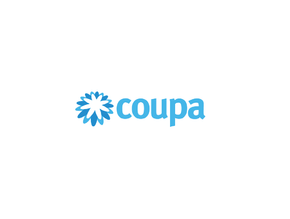Net-Zero: Decarbonising concrete with strategic procurement

Responsible for 8 per cent of global CO2 emissions, cement is the single largest industrial emitter of Co2, and with 26 billion tons produced globally per year, it is one of the most-used resources on Earth. Although the need for it obviously isn’t going away, US climate policies have chosen to prioritise decarbonising other sectors such as power and transportation, letting the decarbonisation of cement and concrete to lag.
Industrial emissions are hard to abate, and industries often operate with slim margins and are highly exposed to global competitive pressures. As a result, decarbonising is seen to be an expensive and risky move that threatens jobs and the viability of business.
But to achieve net-zero, decarbonisation is critical. Innovations such as CO2-based bendable concrete and policymakers are making some headway.
To address the gap, Congress passed the Clean Industrial Technology Act, which “addresses critical gaps in the federal research portfolio, creating new programs for harder-to-decarbonize sectors—such as cement, steel, chemicals, and heavy transport—that are absent or under-represented in the current clean energy research portfolio. We need an innovation agenda that addresses all sources of emissions and all sectors of the economy, and CITA is an important step to drive innovation in these sectors,” said Colin Cunliff, Senior Policy Analyst, Information Technology and Innovation Foundation.
Sustainable Procurement
In 2017 California adopted a Buy Clean law. Introduced in New York State and New Jersey, the Low Embodied Carbon Concrete Leadership Acts (LECCLA) is a preferential procurement bill that requires all state agencies and departments to factor in climate impact in their selection criteria for concrete procurement.
A white paper by Carbon180, Paving the Way for Low-Carbon Concrete, Recommendations for a Federal Procurement Strategy, speaks to how through procurement policies, the government can leverage public purchasing power to build strong early markets for low-carbon concrete alternatives and thereby catalyse access throughout the economy.
Public infrastructure such as buildings, roads and bridges all require a mass amount of concrete, making government agencies one of the top buyers of concrete. Their immense purchasing power is enough to swing market demand, and preferential government procurement policies can help jumpstart innovation and support the development of materials produced with low greenhouse gas emissions.
The Buy Clean program encompasses carbon labelling requirements and ensures government take climate impact into consideration when awarding business. Importantly, it sets a standard for what is to be considered “clean” and does not allow any non-abiding companies to bid for government contracts, thereby creating market demand for clean products.
This same framework can later be leveraged to continue to further tighten up requirements and ensure continual improvements in sustainability.
Procurement, it really is a powerful thing.
If you want to find out more, Paving the Way for Low-Carbon Concrete “provides background on concrete’s relevance to the climate crisis; a survey of state and municipal low-carbon concrete procurement initiatives that can inform federal policy directions; and a comprehensive set of policy recommendations focused on opportunities to accelerate low-carbon concrete commercialisation through the power of federal government procurement standards.”





